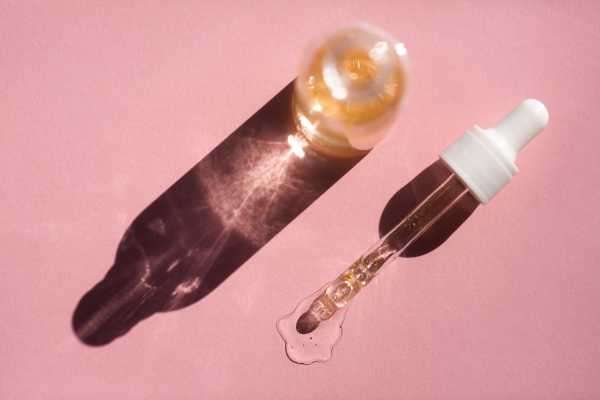Retinol’s power is what makes it popular, but not all skin types can handle it.
By
Rachel Burchfield
Jul 21, 2021

Anna EfetovaGetty Images
If you get your skin care tips only from TikTok, you might be led to believe that an application of retinol is right up there with brushing your teeth in terms of daily nonnegotiables (which is certainly true for some). And that if your skin is flaking, red, and irritated, it means that the powerhouse product is working and you just have to push through. On the other side is the promised land of baby-smooth, ageless skin. But there might be more to the story.
While it is true that the vitamin A derivative’s infamous retinization process and its unpleasant side effects will cease for most after four weeks as the skin builds tolerance, as with anything in beauty, one size doesn’t fit all. For some, retinol (even in over-the-counter products) is just too strong.
The conversation around retinol has become increasingly sensationalized with each stitch, regram, and retweet. Here’s what we can all (hopefully) agree on: Retinol aids in cell turnover, boosts collagen production, and is responsible for many skin miracles including but not limited to minimizing the appearance of fine lines and wrinkles, reducing hyperpigmentation, smoothing texture, and helping keep skin clear and free of blemishes. We know it’s not safe for use during pregnancy or while breastfeeding. And caution should be used if you have sensitive skin.
That’s where the common ground usually ends. Five years ago, experts told BAZAAR.com that “even sensitive skin can be trained to tolerate vitamin A derivatives,” but opinions on the matter seem to be shifting. Retinol might not be the answer for those among us with reactive and/or sensitive skin (think eczema or rosacea)—of whom, there are many. “I wouldn’t say you have to fear retinol, but you definitely have to treat it with respect,” Rajani Katta, a dermatologist based in Bellaire, Texas, says. “Retinol is a powerful ingredient with powerful benefits, which is why it has to be used with care.”
Below, we speak with skin care experts and dermatologists to get the final word on whether or not retinol is right for you.
NICHOLA JOSS, FACIALIST
“Retinol is a great addition to your skin care routine,” Nichola Joss, who has worked with such clients as Duchess Meghan and Kate Moss, says. “But it is not essential for everyone.” For those who retinol does work for, Joss recommends using it as a nighttime skincare treatment to get the most effective results, starting on a very low percentage as advised by a professional, and seeking advice before increasing strength. “Make sure you use sunscreen to protect your skin in the daytime,” she notes. Retinol might not be a fit for those with overly sensitive or hypersensitive skin, those who have food intolerances or high allergic reactions, and young skin, she says. “Caution is necessary when using any vitamin A derivatives and should only be used after advice from your derm or skin care specialist,” Joss says.
PAUL JARROD FRANK, DERMATOLOGIST
“If you have rosacea, psoriasis, or are eczema prone, then retinols are not really for you,” Paul Jarrod Frank says. “If you have sensitive skin, start slowly and increase with tolerance.” For those with sensitive skin, he suggests starting with a gentler retinol that is 0.025 percent in concentration, using only a pea-sized amount for your full face every other or third night, and then increasing with tolerance. “Need is subjective,” he tells BAZAAR.com. “I don’t think anyone needs it, but there are people that can benefit from it”—like those with acne-prone skin or those concerned with signs of aging.
Source: www.harpersbazaar.com




